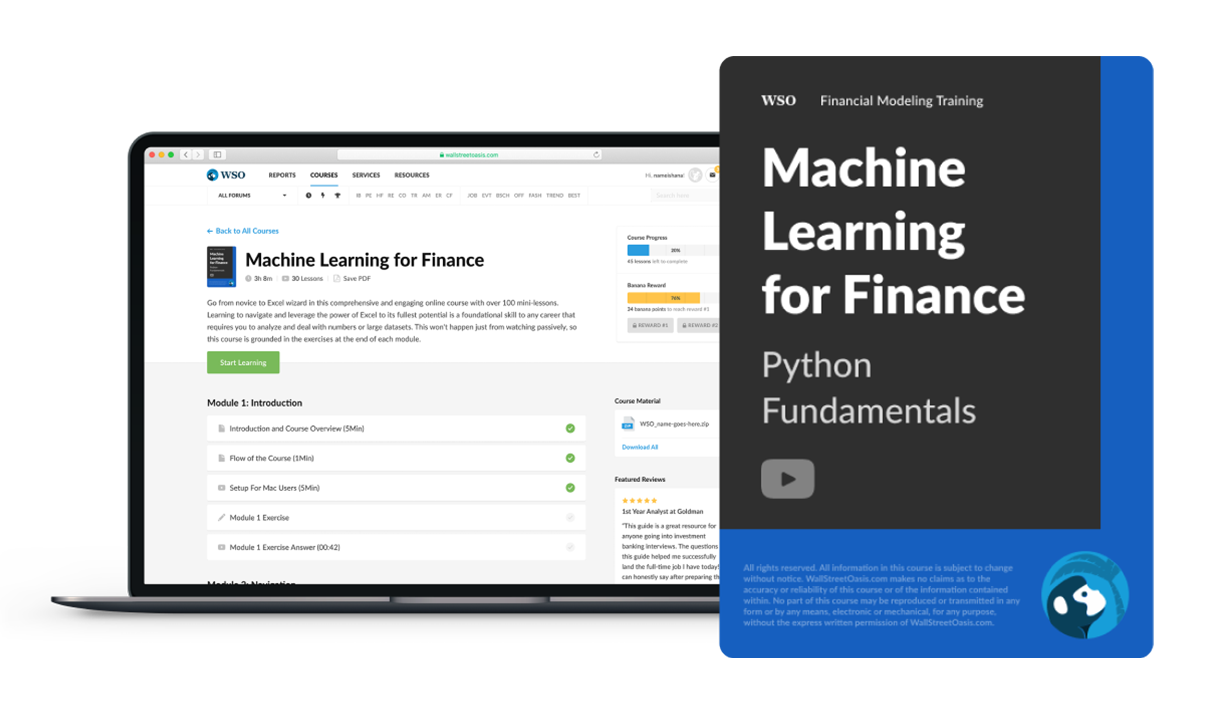Trading Platform
Trading platforms are computer applications used for managing and executing trade positions.
What is a Trading Platform?
A trading platform, sometimes referred to as an online trading platform, is a piece of computer software that allows users to make orders with financial intermediaries for financial products across a network.
The trading platform may trade different financial items directly amongst participants or members of the trading platform, over a communication network with a financial intermediary, or both.
This covers goods with a financial intermediary, including brokers, market makers, investment banks, or stock exchanges, such as stocks, bonds, currencies, commodities, derivatives, and others.
Trading platforms enable investors and/or traders to execute securities deals and maintain funded accounts. The best platforms employ complex architecture databases to increase security, transparency of information, and secondary market liquidity.
The network-based environment allows traders to electronically haggle with offers based on transactional parameters and other terms and conditions, apply the appropriate search criteria, and engage in mutually beneficial interactions.
Key Takeaways
- Trading platforms are computer applications used for managing and executing trade positions.
- Trading systems may offer an order input panel with a basic user interface for inexperienced investors.
- They can also offer more advanced capabilities, such as access to private research, live news feeds, learning resources, advanced charting software, and real-time streaming quotes.
- Traders and investors should consider fees and benefits when comparing trading platforms.
Understanding Trading Platforms
A trading platform is essentially a network-based market that gives customers infinite functionality to execute transactions, look through financial instrument catalogs, and monitor accounts via financial institutions outside the bank dealer network.
Majority of the time, trading programs come with various extra features to allow timely access to trading data, and seamless trader-to-trader contact is guaranteed.
Examples of these extra features include
- Premium research data
- Real-time quotes
- News feeds
- Charting tools
Furthermore, trading systems are designed to satisfy specific market needs, including those for futures, equities, options, or currencies. These programs offer more options for how to execute trades and manage deals by offering features specific to each market structure.
To accommodate various trading styles and preferences, brokerage houses, banks, and independent software vendors offer trading platforms.
A trader's unique needs and trading tactics should be considered while selecting a platform, along with other elements, including fees, commissions, and regulatory compliance.
Types of Trading Platforms
Trading platforms fall into one of two categories: proprietary or commercial.
Day traders and individual investors use commercial platforms. Their ease of use and extensive list of useful features, such as real-time quotes, global news feeds, live, interactive charts, instructional content, and research tools, set them apart from the competition.
Prop platforms, on the other hand, are specialized platforms created by major brokerages to meet their unique requirements and trading styles. Depending on their trading style and volume, traders employ a variety of trading platforms.
Below are the types of trading platforms.
Commercial Platforms
Commercial trading platforms are software tools provided by organizations, including brokerage firms and financial institutions, to facilitate trading on various financial markets.
On these websites, traders of all skill levels can discover the tools and materials they require. Commercial systems for FX and CFD trading include
- MetaTrader 4 (MT4) and MetaTrader 5 (MT5)
- Thinkorswim for advanced stock analysis and trading
- Interactive Brokers Trader Workstation (TWS) for access to international markets
- NinjaTrader for day and algorithmic traders
Different trading tastes are catered to by other solutions like TradeStation, cTrader, SaxoTrader, E*TRADE Pro, AvaTrade, and IG Platform.
The selection of a commercial platform is influenced by various elements, including trading strategy, asset class preferences, and the amount of features and tools necessary for successful trading.
Note
When making a choice, traders should also consider charges, fees, and the reputation of the platform provider.
Prop Platforms
Financial institutions and proprietary trading companies utilize a specialized system called a proprietary (prop) trading platform to carry out trades and control their own funds.
Prop trading platforms are made for internal trading activity, as opposed to commercial platforms, which cater to external clients.
These often include cutting-edge technologies, quick execution, and personalized solutions to cater to the unique requirements and trading tactics of the firm's traders.
Proprietary trading firms conduct trading operations using their own cash rather than client funds, and their proprietary terminals are designed for effectiveness and risk control.
Prop trading systems are essential in allowing these businesses to strategically invest in various asset classes, including equities, options, futures, and currencies, in search of profit possibilities. To preserve market integrity and stability, the use of prop trading platforms is subject to regulation.
Picking a Trading Platform
Traders and investors should weigh the platform's usefulness against associated costs when selecting a platform.
Day traders and other short-term traders may require tools to aid in decision-making, such as Level 2 quotations and market maker depth charts, while options traders may require software created to simulate options strategies.
Another important factor to take into account while choosing platforms is fees. For instance, traders that utilize scalping as a trading method would favor a cheap charge program.
Most traders search for platforms with the lowest fees when making their selection. An illustration of this would be a trader that employs the scalping trading strategy. Trade-offs are typically there in the offering for consideration, even though reduced fees are normally preferred.
A trading platform that is less expensive but has fewer features and insufficient research, for instance, might not be the best option.
Reviewing multiple processes, such as feedback ratings and customer reviews, is another approach to evaluate and compare different platforms. However, one must bear in mind that not all reviewers are independent or free from bias.
Examples of Trading Platforms
The finest trading platforms give users tools to assess complex options transactions, manage watchlists of stocks and funds, receive notifications for securities that might be intriguing trades, and place orders quickly and intuitively.
A good terminal might also offer streaming news and even improve trade execution, enabling you to lock in the most favorable pricing. Below are a few recommendations.
Charles Schwab
Charles Schwab makes a good all-around choice for active traders and investors of all experience levels, especially novices. The broker's basic platform allows you to access financial information about a firm, spot patterns, and maintain watchlists.
However, the flagship experience is available on its StreetSmart Edge platform, which is highly customizable and provides screeners for trading ideas, news feeds, live CNBC coverage, advanced charting, and an all-in-one trading ticket.
Interactive Brokers
Interactive traders have long favored Interactive Brokers due to their excellent trade execution and versatility in practically any market.
If you only need to place a fast deal, the broker's GlobalTrader platform is adequate, but traders will likely find the broker's Trader Workstation to be a true workhorse. Everything seems to be covered by this fully equipped tool, including customizable charts, real-time data, streaming news, options analytics, and more.
TradeStation
TradeStation needs to be on a trader's shortlist of potential brokers due to its volume discounts and robust platforms.
With built-in charting indicators, more than 180 technical and fundamental indicators, the option to develop your own indicators, and decades of historical data for backtesting techniques, the flagship desktop software offers a high-quality user experience.
Although you can choose the broker's web-based platform with streaming real-time quotations, dozens of technical studies, watchlists, and much more if you don't quite need all that capability but still want a very capable app.
TD Ameritrade
Active traders have historically preferred TD Ameritrade, and the broker enters the fray with two trading platforms. Its traditional web-based infrastructure handles all the essential functions, such as streaming news, outside research, and watchlists.
With its think or swim platform, which has online, desktop, and mobile versions, TD raises the bar. You have access to not only the fundamental assets (stocks, bonds, ETFs, options, and mutual funds) but also the more sophisticated ones (futures, forex, and futures options) through this fully functional platform.
Fidelity Investments
A trading platform that combines Fidelity's tools and features is called Active Trader Pro.
You can create stock charts, use hundreds of technical indicators to assess the movement, execute multiple transactions at once, and stream Bloomberg TV directly to your PC. To keep up with the market, you will also receive real-time news, earnings reports, and other economic news.
Additionally, you'll have fast access to tools like Trade Armor, which displays your trading possibilities, and Real-time Analytics, which provides trading indications when a stock passes important technical levels.
Conclusion
A trading platform is a computer software that enables users to order financial items through a financial intermediary over a network. The platform, across a channel of communication between traders on the trading platform or directly with a financial intermediary, provides options for trading various financial products.
Trading platforms frequently provide users with access to live market prices via which they can transact, as well as other trading tools, including charting software, news feeds, and account management options.
Some programs have been created particularly to give people access to financial markets that were previously exclusively available to specialized trading corporations through direct market access.
Banks, independent software vendors, and brokerage firms all offer platforms to accommodate various trading tastes and styles. While taking into account elements like costs, commissions, and regulatory compliance, a trader's platform selection should be in line with their unique needs and trading tactics.
Traders may make transactions, manage their portfolios, access tools for research and analysis, and keep an eye on their investments thanks to these platforms.
Platforms are essential to the modern financial environment because they make it possible for people and organizations to efficiently and successfully trade on international marketplaces.

Everything You Need To Understand Python For Finance
To Help You Thrive in the Most Prestigious Jobs on Wall Street.
Researched and authored by Ray Bassil | LinkedIn
Free Resources
To continue learning and advancing your career, check out these additional helpful WSO resources:



or Want to Sign up with your social account?